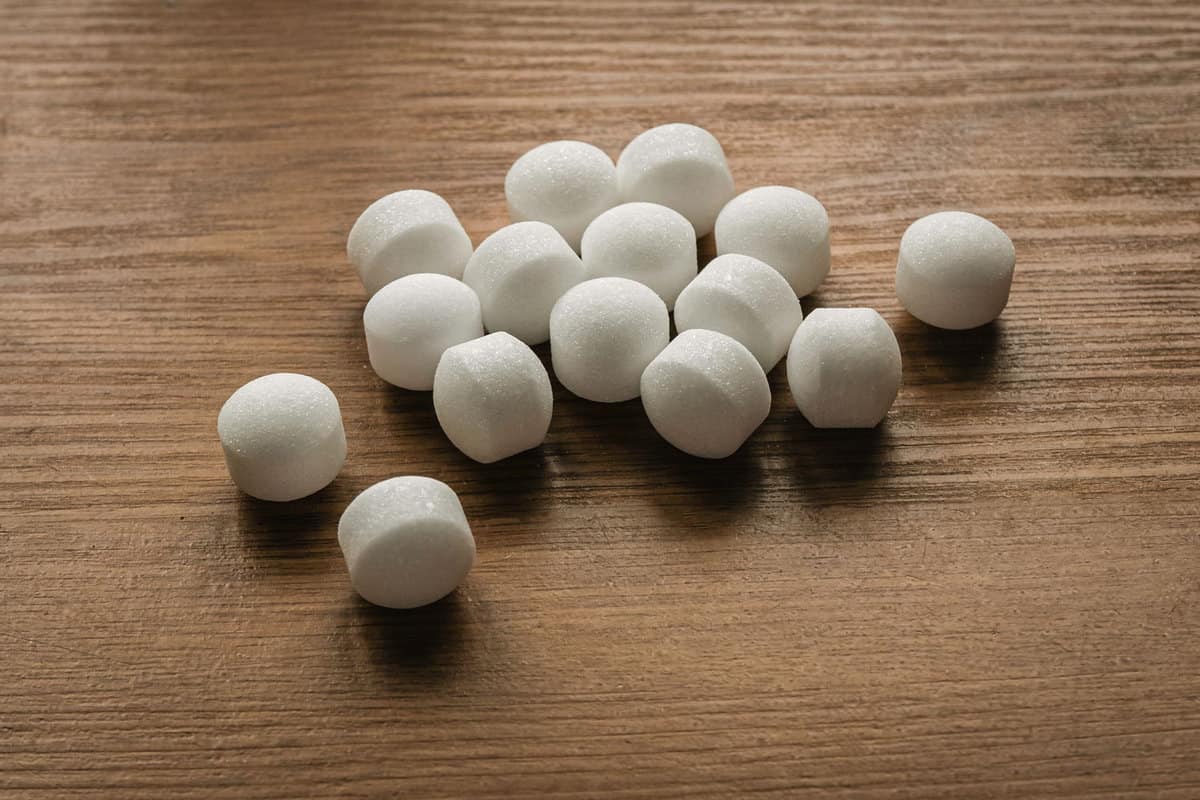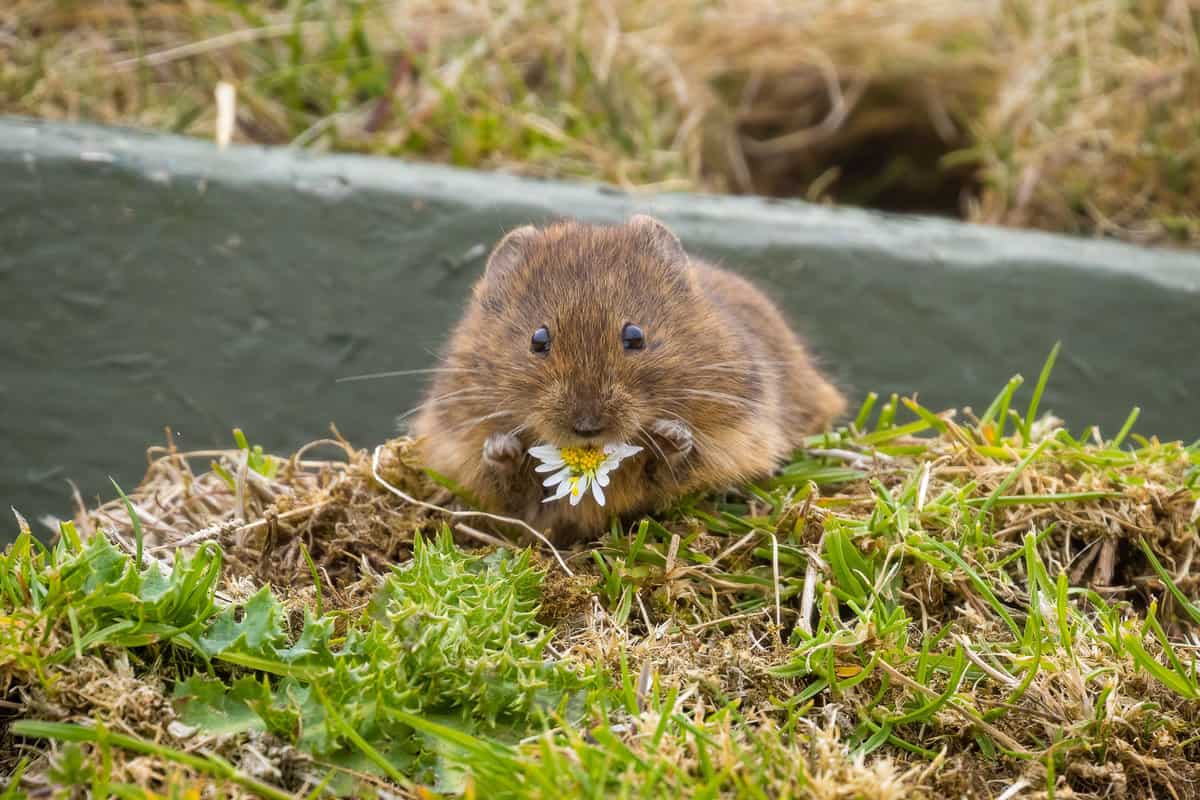Are you frustrated with voles wreaking havoc in your yard and garden?
Voles are small rodents that can cause significant damage to your lawn and garden. They create tunnels and caves, which can uproot plants and damage the root system.

Many people have turned to mothballs as a solution to this problem. The idea is that the pungent odor of mothballs will deter voles from coming near your property.
But is this the case? In this article, you will dive into the effectiveness of mothballs in keeping voles at bay and offer some alternative solutions for you to consider.
Understanding Voles
If you are a gardener, you may have experienced the destructive nature of voles. These little creatures might look tiny, but they can cause significant damage to your garden.

Understanding voles can help you take the necessary steps to protect your garden from their destructive behavior.
Habitat and Behavior
Voles prefer to live in grassy areas, fields, and meadows. They are active day and night and are known for their burrowing behavior.
Voles create a network of tunnels underground, which can cause damage to your garden plants and roots. This behavior can also make walking or mowing the lawn difficult.
Common Problems Caused by Voles
Voles can cause significant damage to your garden by eating the roots of plants, shrubs, and trees. They can also gnaw on the bark of trees, which can cause them to die.
Thus, protecting your garden from voles requires a multi-pronged approach.
Related Posts:
Mothballs as a Vole Deterrent
Mothballs are small balls made of a chemical called naphthalene or paradichlorobenzene.
While mothballs are primarily used to repel moths and insects, they can also deter voles.
Chemical Composition of Mothballs
When mothballs are placed in enclosed spaces, they release fumes that repel moths and insects. However, these fumes can also harm humans and animals if inhaled in large quantities.
How Mothballs Affect Voles
It is important to note that mothballs are not a foolproof solution for vole control.
Voles may become accustomed to the odor over time and move to another area of your garden.
If you decide to use mothballs as a vole deterrent, it's essential to use them safely. Mothballs should never be placed directly in your garden soil, as they can contaminate the soil and harm beneficial insects and microorganisms.
Instead, place the mothballs in a mesh bag or other container and hang them near the area where voles are present.
Related Posts:
Effectiveness of Mothballs Against Voles
According to some experts, mothballs can effectively repel voles if used carefully.
However, while mothballs may effectively repel voles in the short term, they are not a long-term solution. Voles are persistent creatures and often find a way around barriers and repellents over time.
Alternatives to Mothballs for Vole Control
You have several options if you are looking for alternatives to mothballs for vole control.
If you're looking for a more long-term solution to your vole problem, consider using other vole repellents, such as castor oil or predator urine.
These repellents create an unpleasant environment for voles, making it less likely that they will want to stick around.
If you're dealing with a vole problem, it's essential to consider all your options and choose the one that is best for your situation.
Here are some other options you can try:
Commercial Vole Repellents
There are several commercial vole repellents available on the market. These products work by emitting a scent or sound that voles find unpleasant.
Some of the most popular vole repellents include:
- Solar-powered ultrasonic repellent spikes
- Castor oil-based repellents
- Peppermint oil-based repellents
Before using any commercial vole repellent, read the label carefully and follow the instructions.
Homemade Vole Deterrents
If you prefer a more natural approach to vole control, you can try several homemade vole deterrents.
Some effective homemade vole deterrents include:
- Planting daffodils, alliums, or other plants that voles dislike
- Sprinkling cayenne pepper or red pepper flakes around your garden
- Placing a mesh barrier around the base of trees or plants to prevent voles from chewing on the roots
Remember that homemade vole deterrents may not be as effective as commercial products or natural predators, but they can be a good option if you are on a budget or prefer a DIY approach.
See? There are several alternatives to mothballs for vole control that you can try!
How to Get Rid of Voles Permanently
Here are some tips on how to get rid of voles permanently:
- Remove their food sources: Voles are attracted to yards with a lot of plant debris, so it's essential to remove any dead plants or leaves. Keep your yard clean and tidy, and remove any piles of rubble where voles could hide.
- Use traps: Live traps are an effective way to catch voles. Place the traps in areas where you've seen vole activity, and bait them with peanut butter or apple slices.
- Use repellents: Various vole repellents, such as castor oil or coyote urine, are available. These can be applied around the perimeter of your yard to deter voles from entering.
- Install fencing: Voles can burrow under fences, so it's vital to install a fence that extends at least 6 inches below ground level. Use ¼-inch wire mesh fencing to prevent voles from entering your yard.
In Closing
It is important to note that while mothballs may repel voles, they are not a specific solution for getting rid of these pests.
Several other methods can be used with mothballs to keep voles away from your property.
If you are dealing with a vole infestation, taking action as soon as possible is essential to prevent further damage to your property.
You can effectively repel voles and keep them away from your property using a combination of methods, including mothballs.
